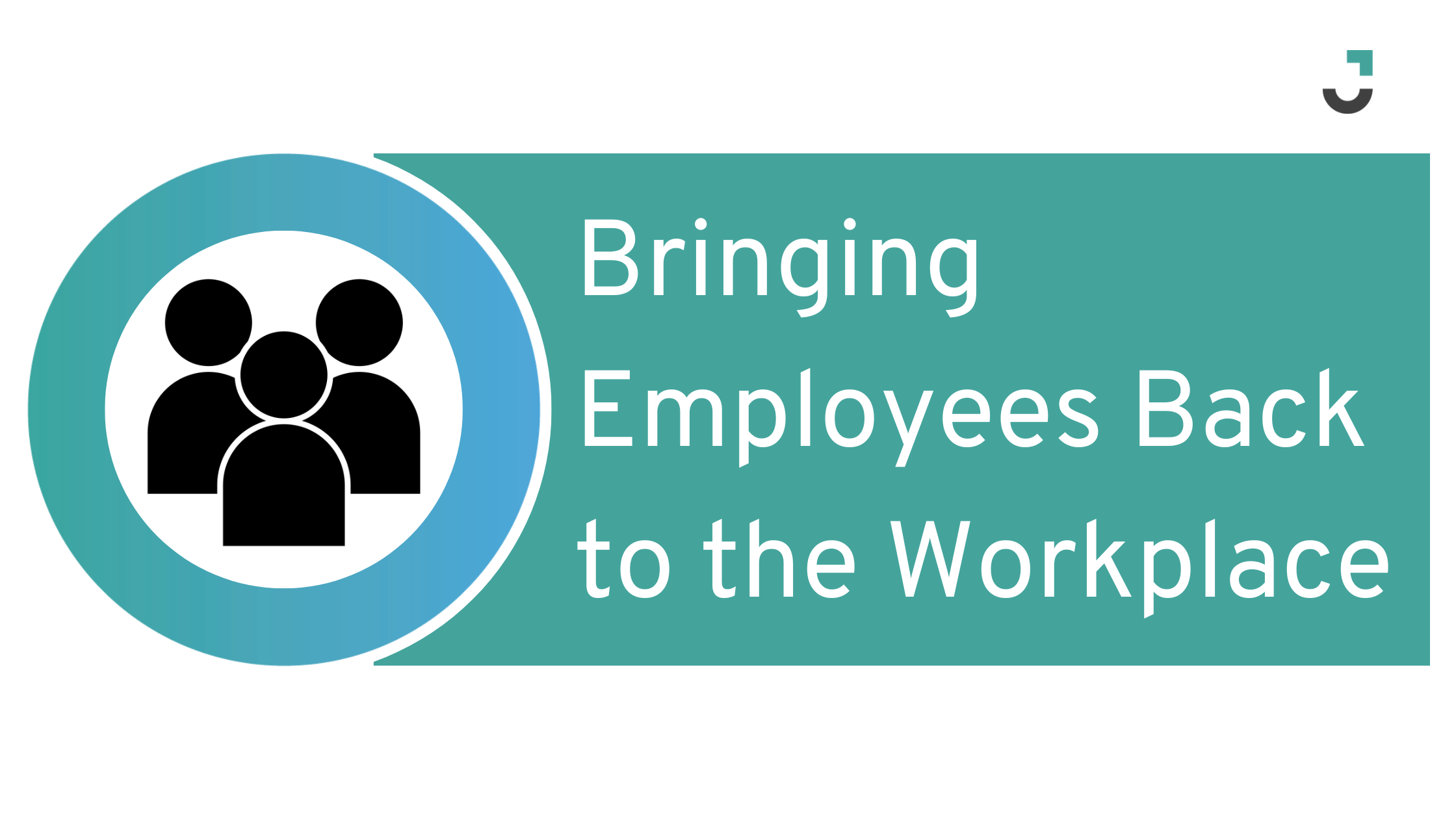As companies move forward, and if they choose to do some type of hybrid of remote and in person work, the paramount concern for employers should remain on ensuring employee happiness, health, and safety, says Arran Stewart
Over the past year, the labor market experienced one of the worst downturns in modern history. The novel coronavirus devastated the economy and sectors such as travel and hospitality were literally brought to their knees. While governments did their best to enforce necessary lockdowns to protect citizens’ health, the cost to the economy was losing tens of millions of jobs.
More than 14 brutal and uncertain months later, thankfully there is now light at the end of the tunnel, with the greatest back to work resurgence seen in our lifetime. However, returning to work will not be as simple as resuming the daily commute like nothing happened or changed. The legacy that Covid-19 leaves behind is an ongoing minefield of challenges that companies and employees must face together. The following are the key areas that organizations must base their policies around to achieve a successful transition back to ‘normal.’
Sensitivity to mental health
Managers must recognize that the last year has been incredibly difficult with many workers isolated from family and friends, grappling with uncertainty and fear at a magnitude that we have not felt before in our lifetime. Fear is meant to help keep people safe, and it very well may have helped with mask wearing, social distancing, and lockdown compliance, but the intense fear that many felt and continue to feel will not disappear overnight. Employees are going to need time, especially since returning to ‘normal’ means yet another enormous change.
There also continues to be terrifying statistics in the headlines daily and with so much continued uncertainty, it is completely understandable for employees to be hesitant about returning to the office. Even with the widely available vaccine, many workers are still fearful of returning to work and entering public places. Companies and their managers must be sensitive to this and empathize with those who may be fearful or even unwilling to return to a workspace immediately. Collectively, we must take the stance that we all need time to adjust to life again and to allow the fears of Covid-19 to fade and become a thing of the past.
The workplace
Companies are going to have to take all the precautions necessary to make sure that workers are safe both physically and mentally. Part of this will include having a noticeably different workplace from before and after the pandemic. A key aspect will be the layout of the office with desk setups that allow for better social distancing, which means that the capacity of the space must be taken into consideration and companies will either have to expand their office space or rotate their employees between remote and onsite work.
Increased cleaning, which will be an unavoidable considerable financial investment for companies, will be key as well. It will be essential for employees to both see and feel that their work environment is clean – having a highly visible cleaning team would be helpful. Masks will also be a necessary aspect to returning to the office. Even when states no longer have mask mandates, many companies will most likely maintain their own set of rules and enforce some level of mask wearing in the workplace. Despite what some think about masks, at the very least they are a conscious effort from one person to another, visibly showing care for the other person’s health.
Privacy versus safety
Companies are currently grappling with the question of whether or not they can insist on their employees being vaccinated to return to the workplace. This is an unbelievably difficult question to answer, because arguably, it is every person’s human right to make their own healthcare decisions. However, the question then becomes, does it put other employees at risk if not all employees are vaccinated? Because not getting vaccinated does not only affect an individual’s health, but the health of those around them as well (e.g., what about employees who are unable to get vaccinated because of health conditions?). Thus, employers find themselves in the middle of an extremely delicate balance and navigating this will be challenging. Where should the line be drawn with privacy, human rights, and safety?
While this is certainly a complex issue that creates many challenges for human resource departments and potentially liability issues, leaving the decision to employees, especially those who are not healthcare professionals, could lead to further confusion as opposed to less. This is clearly going to be an area where governments need to issue directives to make sure we best protect everyone in the workplace. I hope to see clear guidelines from governments that help companies navigate this tricky area as they begin to bring back the workforce. But until those guidelines are established, companies must be sensitive to the complexities their employees are grappling with and remain empathetic and flexible in their requirements.
Hybrid work policies
The CEO of WeWork recently claimed that only the least engaged employees will want to continue to work remotely. This is a perfect example of exactly what companies should not communicate to their workforce. Firstly, this statement is blatantly inaccurate – studies have shown that there has been an increase in productivity among employees this past year, when many workers went from working in the office to working remotely. Not to mention that this statement is incredibly insensitive, especially considering all those employees have been through and the earlier mentioned, extremely valid reasons why workers would be hesitant to return to in-person work, none of which have anything to do with lack of engagement.
As companies move toward bringing their workers back, they must also take into consideration where their employees are happiest and most productive working from. Do companies really want to force their employees to work in an environment where they are neither happy nor at their best – especially when they have already seen for the past year that the employees perform just as well, if not better, when working from home? Personally, I think working from an office or similar workplace should always be optional. Workplaces could be available and used in a hybrid sense for collaborative work, when face to face is required, or if there is a client or vendor meeting.
At the very least, companies should both expect and respect a slow transition when they ask workers to return to the workplace. This has been an unbelievably difficult year for everyone, collectively. There has been an unprecedented amount of fear and uncertainty with life as we knew it changing overnight. It is completely understandable that people would be afraid for their health and safety when contemplating returning to the workspace and that many may prefer to simply continue working remotely. Companies cannot simply ignore or discount these valid feelings and they must do their best to be as empathetic as possible during these still very stressful and uncertain times.
The bottom line
Employees returning to work, after more than a year away and with all of the changes that have transpired in everyone’s lives over this past year, is an unbelievably complex area to navigate, even more so than we’re currently aware of. The above points are only some of the key issues that companies need to contend with and navigate. There are more issues that need clear guidance, because there are employee rights that must be protected. The power that companies have over employee health information needs to be kept in check to prevent discrimination against employees and respect their right to privacy, especially in regard to their health. Given the complexities and the time that it will take for governments to fully resolve them, companies should do their best to support their team of loyal and hardworking remote workers who, through it all, have kept the business moving forward this entire time.
In my opinion, creating a new hybrid work scenario makes the most sense for a lot of industries – for many businesses, there will likely be at least some need for face-to-face interaction among fellow employees, partners, and clients. But should that require employees across the board to be in the office for a specified number of days? I do not believe so. Do we really want to return to long commutes, unnecessary pollution, earlier mornings, and wasting time traveling when the work can be achieved from the comfort of one’s dining room table, couch, or spare room?
What Covid-19 gave us, despite how much it took from us, was the ability to see that we are all more resilient than we may have previously given ourselves credit for. We shouldn’t forget these lessons by trying to force workers back to the way things were. However as companies move forward, including if they choose to do some type of hybrid of remote and in person work, the paramount concern for employers should remain on ensuring employee happiness, health, and safety.
Original Article Here
Original Author: Arran Stewart, Chief Visionary Officer, Job.com


